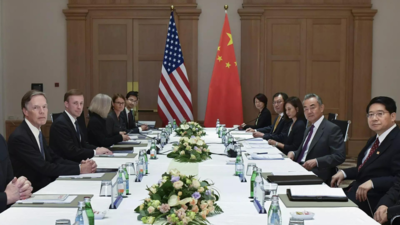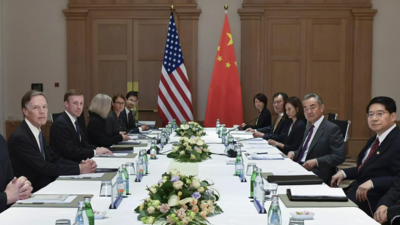China’s USD-denominated funds have traditionally looked to Silicon Valley firms for inspiration, utilizing them as standards for domestic investment goals. They would look for the Pacific Ocean counterparts of Facebook, Amazon, and Uber in the hopes of making a splash in the mostly unexplored internet market of that nation.

The effectiveness of American funds’ dealmaking technique in China has decreased due to changes in both the domestic and global environment. Due to a combination of reasons, including China’s crackdown on the IT sector and rising tensions between the United States and China, these investors are increasingly looking outside for opportunities, following in the footsteps of a new wave of Chinese-founded businesses that are growing internationally.
Table of Contents
Evolution of American Venture Capital in China: Challenges Amid Changing Landscapes
American venture capital companies, led by industry heavyweights like Sequoia Capital, IDG Capital, and GGV, have been heavily involved in investing high-risk, high-reward entrepreneurs in China’s consumer internet sector since their debut into the nation in the late 1990s. But today, after twenty years of mutually beneficial cooperation, the chances for foreign investors to make investments are being reduced by domestic and international developments.
Risks Amplify Investors’ Worries Amid Beijing’s Tech Crackdown in China
Investors are experiencing a new level of anxiety as a result of Beijing’s extensive tech crackdowns in recent years. Venture capitalists are worried that their portfolio businesses might suffer the same fate as Didi, which was forced to delist from New York after a protracted data security investigation, and Ant Group, whose massive IPO was canceled.

Investors who previously depended on bringing Chinese companies public in the U.S. are no longer guaranteed an exit route as a result of China’s increasing control over foreign IPOs.
In the meanwhile, as the two nations’ tech rivalry heats up, Washington has tightened limits on American financial transfers to China. President Joe Biden issued an executive order in August prohibiting US investments in three strategically important Chinese industries: semiconductors, artificial intelligence, and quantum computing.
Adapting Strategies: USD Funds’ Cautious Stance Amid China’s AI Expansion
Even in the middle of a worldwide AI frenzy that has given rise to a parallel AI universe in China, USD funds are exercising more prudence than ever before as they wait for greater information on the extent of the prohibition. Simultaneously, the funding of vital IT industries is increasingly dependent on local RMB money. For example, Zhipu AI, one of China’s most ambitious OpenAI rivals, obtained funding in RMB rather than USD.
The economy is slowing down and these shifting currents have led to a sharp drop in American venture capital investing activity in China. In 2022, US investors only spent $14.5 billion in Chinese businesses.
based venture capital firms, down from $45.4 billion in the previous year, per a study by research company Pitchbook. The number of agreements almost fell in half to 595, while the percentage of deals with involvement from U.S. investors fell to 18.2% in 2022 from above 30% over five years.
Sequoia Capital’s Shift: Impact and Investigations Amid China’s Investment Changes
The most famous victims of the cutback include large investors such as Sequoia Capital China, which rebranded itself as HongShan after severing its China business. Sequoia continues to be under investigation by the US government because of its long history of investing in China, even after taking the initiative to disconnect. Crunchbase data shows that throughout the first three quarters of this year, HongShan closed just 47 agreements, as opposed to 99 deals during the same period in 2022.
Investors are beginning to search outside of China for chances as the country loses appeal as a place to invest. Many are just following Chinese talent who have already started their global expansion journey, rather than making a whole shift (a subject we’ve discussed in-depth here and here).

Chinese companies have a rich history of expanding overseas, with each wave adopting a unique strategy. In the past, a lot of businesses would only expand after finding success in China. More people these days are considering worldwide expansion from the start, perhaps even ignoring their own market.
Return of the Innovators: Chinese Entrepreneurs’ Global Ascent and the Legacy of Tech Titans”
Many of the Chinese pioneers of the globalizing movement today have studied or worked abroad. They came back in the late 2010s, drawn by the explosive expansion of the Chinese internet, to join the ranks of Tencent, Baidu, Alibaba, and ByteDance, among others. With the goal of following in the footsteps of Alibaba founder Jack Ma, they set out on their own entrepreneurial adventure after gaining an inside look at Chinese internet giants.
They are referred to as haigui in China, which is a homophone for “sea turtles” and means “those who return from overseas.” After Ma fell from glory and China launched an attack on Big Tech companies, including Ant Group and Alibaba, their hopes began to crumble. They quickly discovered that China has moved into a new age, with more stringent regulations governing.
